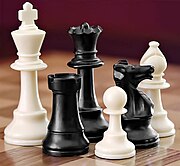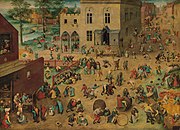دانشنامه آزاد ۴ زبانه / εγκυκλοπαίδεια / licence
Elton پروژهای چندزبانه برای گردآوری دانشنامهای جامع و با محتویات آزاد استدانشنامه آزاد ۴ زبانه / εγκυκλοπαίδεια / licence
Elton پروژهای چندزبانه برای گردآوری دانشنامهای جامع و با محتویات آزاد استدرباره من
روزانهها
همه- کانون تبلیغات آریا تبلیغ پیامهای تبلیغاتی خود را به دست نیم میلیون ایرانی در سرتاسر دنیا برسانید
- my profile Sepehr elton
- مدیریت دانش نامه سایت مدیریت دانشنامه
پیوندها
- لیستی از 7299 زبان و لهجه جهان
- Farsi <-> English Dichtionary
- 1ου Γυμνασίου Χαλανδρίου
- ابزارهای وب فارسی است
- سلامی چو بوی آشنایی
- استکهلم و استکهلمیان
- way dont you smile ?
- You tube video
- BBC Languages
- Iranian media
- اخبار سیاسی
- خیالی نیست
- دین زرتشتی
- ایران امروز
- Tv of Iran
- my profile
- kala post
- Just MP3
- 3Jokes
- irlearn
- مهتاب
- BMW
- طنز ۲
- سایه
- طنز
دستهها
- ........علوم ریاضی و طبیعی...... 1
- آمار / Statistics 4
- بوم شناسی / Ecology 3
- ریاضیات / Mathematics 4
- زیست شناسی / Biology 6
- ستاره شناسی / Astronomy 4
- شیمی / Chemistry 4
- علم بهداشت / Health science 2
- علم زمین 1
- جغرافیا 1
- علم کامپیوتر 1
- فیزیک / Physics 4
- آموزش 2
- ارتباطات / Communication 3
- پزشکی / Medicine 5
- بازرگانی / Trade 2
- حکومت / Government 2
- ترابری / Transport 3
- حقوق 1
- روابط عمومی / Public relations 3
- سیاست / Politics 2
- خانه داری 1
- علم کتابداری و اطلاعات/Library 2
- فناوری / Technology 3
- کشاورزی / Agriculture 2
- معماری / Architecture 2
- مهندسی / Engineering 2
- مهندسی نرم افزار/Software engine 2
- اسطوره شناسی / Mythology 3
- اقتصاد / Economics 3
- باستان شناسی / Archaeology 4
- تاریخ / History 4
- تاریخ و علم فناوری 3
- جامعه شناسی / Sociology 1
- فلسفه / Philosophy 3
- مردم شناسی/Anthropology 3
- آشپزی 1
- اپرا / Opera 2
- ادبیات / Literature 3
- اینترنت / Internet 3
- بازی ها / Game 3
- باغبانی / Gardening 2
- تئاتر / Theatre 3
- تفریحات / Recreation 2
- تلوزیون / Television 3
- تعطیلات 1
- تفنن / Entertainment 2
- رادیو 3
- رقص / Dance 1
- سرگرمی ها / Hobby 2
- سینما / Cinema 3
- شعر / Poetry 3
- صنایع دستی / Handicraft 2
- طراحی و هنرهای بصری 1
- کلاسیک / Classics 2
- گردشگری 1
- مجسمه سازی 1
- مذهب / Religion 3
- موسیقی / Music 3
- نقاشی / Sport 1
- ورزش 3
- علوم سیاسی / Political science 2
- زبان شناسی 1
- کشورها. / List of countries 3
- زندگی نامه ها / Lists of people 1
- راهنمایی فرار از سانسور اینترنت 1
- راهنمای ساخت وبلاگ 1
- راهنمای ساخت پادکست 1
- تقویم 1
- خط زمانی تاریخ/List of centuries 2
- دستور زبان/This page is a style 2
- نقطه گذاری/Manual of Style 2
- تاریخ اسلام 1
- تاریخ اروپا 1
- تاریخ امریکای لاتین 1
- تاریخ خاور میانه 1
- **شناسنامه بازیکنان تیم ایران*** 1
- جانورشناسی/Zoology 1
- گیاهشناسی/Botany 1
- زیستشناسی سلولی و مولکولی 1
- میکروبیولوژی 1
- ژنتیک / Genetics 1
- بیوشیمی / Biochemistry 1
- بیوفیزیک/Biophysics 1
- بیوانفورماتیک/Biophysics 1
- زیستفناوری 1
- ۱ اینترنت آینده (New generation 2
- ۳ نشانی آیپی 1
- ۳.۱ آی پیها دارای 4 کلاس هستند: 1
- ۳.۲ نام دامنه 1
- ۳.۳ DNS 1
- ۳.۴ پورت 1
- ۳.۵ پروتکل 1
- ۴ اینترنت امروزی 2
- ۶ فرهنگ اینترنت 1
- ۷ سایر موضوعات مرتبط 1
- ۸ نکات حقوقی و اخلاقی 1
- ۹ دسترسی به اینترنت 1
- ۱۰ جستارهای وابسته 1
- ۱۱ پیوندهای بیرونی 1
- روانشناسی یادگیری 1
- روانشناسی اجتماعی 1
- روانشناسی رشد 1
- روانشناسی بالینی 1
- روانشناسی تربیتی 1
- روانشناسی صنعتی 1
- روانشناسی دین 1
- روانشناسی خانواده 1
- روانشناسی جنایی 2
- روانشناسی تحلیلی (یونگ) 1
- روانشناسی کودکان استثنایی 1
- مهندسی برق 2
- مهندسی پزشکی 1
- مهندسی ژئوماتیک (نقشه برداری) 1
- مهندسی شیمی 1
- مهندسی صنایع 1
- مهندسی عمران 1
- مهندسی معدن 1
- مهندسی مکانیک 3
- مهندسی مواد 1
- مهندسی نساجی 1
- مهندسی نفت 1
- مهندسی نرمافزار 2
- مهندسی هوافضا 2
- مهندسی فناوری اطلاعات 1
- مهندسی شهرسازی 1
- فنّاوری اطلاعات /Information 1
- صنعت / Industry 1
- فناوری نانو / Nanotechnology 2
- زیستفناوری (بیوتکنولوژی) 1
- الگوریتم تورینه /Rete algorithm 1
- نانولولههای کربن/Carbon nanotub 1
- اخترفیزیک / Astrophysics 4
- کیهانشناسی / Cosmology 3
- فیزیک فضا / Cosmic physics 2
- فیزیک پلاسما / Plasma 2
- فیزیک اتمی 1
- فیزیک لیزر، / Laser 3
- نجوم / Astronomy 4
- نانو تکنولوژی/Nanotechnology 3
- فیزیک نظری/Theoretical physics 3
- بزرگان علم فیزیک 1
- گالیلئو گالیله / Galileo Galilei 3
- ایزاک نیوتن/Isaac Newton 3
- ترمودینامیک/Thermodynamics 3
- سعدی کارنو/Nicolas Léonard Sadi 2
- الکترومغناطیس/Electromagnetism 2
- مایکل فارادی/Michael Faraday 2
- ماکسول/James Clerk Maxwell 3
- مکانیک آماری/Statistical mechani 3
- نسبیت 1
- آلبرت اینشتین/Albert Einstein 4
- مکانیک کوانتومی/Quantum mechanic 4
- ماکس پلانک/Max Planck 3
- (نیلز بر) 1
- اروین شرودینگر/Erwin Schrödinger 3
- فیزیک هستهای 1
- ماری کوری /Marie Curie 3
- ارنست رادرفورد/Ernest Rutherford 4
- انریکو فرمی/Enrico Fermi 2
- بمب اتمی 1
- فیزیک ذرهای/Particle physics 3
- ادوین هابل/Edwin Hubble 3
- استیون هاوکینگ/Stephen Hawking 3
- anoshe ansari 1
- منشور کوروش و طرح یک سئوال 1
جدیدترین یادداشتها
همهنویسندگان
- سپهر 342
بایگانی
- مهر 1385 3
- تیر 1385 1
- خرداد 1385 338
Game
Please help recruit one, or improve this page yourself if you can.
Please see discussion page for details.
for proper spelling, grammar, usage, tone, style, and voice.
You can help by editing it now. A guide is available, as is general editing help.
-
For other uses, see Game (disambiguation).

A game is an activity, generally recreational in nature, involving one or more players. Most commonly, the word refers to board, card and video games as well as sports. A game generally consists of a goal that the players try to reach and a set of rules that determines what the players can or cannot do. Games are played primarily for entertainment or enjoyment, but may also serve as exercise or perform an educational, simulational or psychological role. Group leaders can use games for creating or altering an individual's ego-boundary or a group's interpersonal boundaries. Games can also be used to alter an individual's or a group's mood. Since games can generate a higher and less cognitive arousal level, they are useful after a large meal or a long and tedious task, but are not good for pre-sleep needs.
Although games have been played since prehistoric times, much of our understanding about them remains speculative.
Contents[hide] |
Etymology
You can help Wikipedia by introducing appropriate citations.
Game is a common Teutonic word, in Old English gamen, in Old High German gaman, but only appears in modern usage outside English in Danish gam men and Swedish gammon. The ulterior derivation is obscure, but philologists have identified it with the Gothic goman, meaning companion or companionship; if this be so, it is a compounded of the prefix ga-, meaning with, and the root seen in man.
Apart from its primary and general meaning, the word has two specific applications, first to a contest played as a recreation or as an exhibition of skill, in accordance with rules and regulations; and, secondly, to wild animals hunted for food. A special use restricts the term to gambling. Gamble, gambler and gambling appear very late in English. The earliest quotations in the New English Dictionary for the three words are dated 1775, 1747 and 1784 respectively. They were first regarded as cant or slang words, and implied a reproach, either as referring to cheats or sharpers, or to those who played recklessly for extravagant stakes. The form of the words is obscure, but is supposed to represent a local variation gammle of the Middle English gamenian. From this word must, of course, be distinguished gambol, to sport or to frisk, which, as the older forms (gambald, gambaud) show, is from the French gambade, leap, jump, of a horse, Italian gambado, gamba, leg (Modern French jambe).
This article incorporates text from the Encyclopædia Britannica Eleventh Edition, a publication now in the public domain.
Definitions
Games can involve one player acting alone, or two or more players acting cooperatively, but most involve competition among two or more players or between two teams, limited by rules. (Taking an action that falls outside the rules generally constitutes a foul or cheating.) Beyond this, the definition varies widely.
Chris Crawford
In his book Chris Crawford on Game Design, Chris Crawford defines the term game (p. 6) using a series of dichotomies:
- Creative expression is art if made for its own beauty, and entertainment if made for money. (This is the least rigid of his definitions. Crawford acknowledges that he often chooses a creative path over conventional business wisdom, which is why he rarely produces sequels to his games.)
- A piece of entertainment is a plaything if it is interactive. Movies and books are cited as examples of non-interactive entertainment.
- If no goals are associated with a plaything, it is a toy. (Crawford notes that by his definition, (a) a toy can become a game element, if the player makes up rules, and (b) The Sims and SimCity are toys, not games.) If it has goals, a plaything is a challenge.
- If a challenge has no “active agent against whom you compete,” it is a puzzle; if there is one, it is a conflict. (Crawford admits this is a subjective test. Some games with noticeably algorithmic AI can be played as puzzles; see, for example, Pac-Man#Ghosts.)
- Finally, if the player can only outperform the opponent, but not attack them to interfere with their performance, the conflict is a competition. (Competitions include racing and figure skating.) However, if attacks are allowed, then the conflict qualifies as a game.
Crawford also notes (ibid.) these other definitions:
- “A form of play with goals and structure.” (Kevin Maroney)
- “A game is a form of art in which participants, termed players, make decisions in order to manage resources through game tokens in the pursuit of a goal.” (Greg Costikyan)
- “An activity with some rules engaged in for an outcome.” (Eric Zimmerman)
Ludwig Wittgenstein
In Philosophical Investigations, philosopher Ludwig Wittgenstein argued that the concept "game" could not be contained by any single definition, but that games must be looked at as a series of definitions that share a "family resemblance" to one another. Games were important to Wittgenstein's later thought; he held that language was itself a game, consisting of tokens governed by rough-and-ready rules that arise by convention and are not strict.
Animals and games
You can help Wikipedia by introducing appropriate citations.
Although many animals play while young, only humans are known to have games and to play as adults. Whether any other animals are intelligent enough to game is debatable, though a game has ritualistic elements (such as rules and procedures) that are voluntarily acted upon, rather than as a result of instinct. The existence of rules and criteria that decide the outcome of games imply that games require intelligence of a significant degree of sophistication.
Non-human animal species may engage in games whose rules and sophistication humans cannot yet detect. It would, for example, seem incongruous that large-brained species such as many Cetaceans and the larger hominids did not play games. Our inability to observe and understand such games should not be taken as a confirmation that they do not exist. Courtship displays in some birds, such as the Black Grouse, appear (from an anthropological view) to include games with clear victors and losers.
Anthropology of games
You can help Wikipedia by introducing appropriate citations.
Games, being a characteristic human activity strongly determined by custom and the frequent subjects of folklore, have been the subject of anthropological investigations.
Classes of games
While many different subdivisions have been proposed, anthropologists classify games under three major headings, and have drawn some conclusions as to the social bases that each sort of game requires.
Games of skill
- Main article: Game of skill
This category includes Games of skill, such as hopscotch and target shooting, and games of mental skill such as checkers. Games of pure skill are likely the oldest sort of game, and are found in all cultures, regardless of their level of material culture.
Games of strategy

- Main article: Strategy game
Games of strategy, such as checkers, go, and tic-tac-toe, require a higher material basis. They are associated with cultures that possess a written language: not surprising, since most strategy games are based on mathematics and feature the manipulation of symbols. They often require special equipment to be played. They are associated with hierarchical societies that place a high value on obedience.
Games of chance
- Main article: Game of chance
Games of chance, such as craps and snakes and ladders, appear at a variety of levels of material culture; what they seem to share generally is a sense of economic insecurity. They are associated with cultures that place a high value on personal responsibility, keeping one's word, and maintaining personal standing in the face of misfortune; in other words, with "cultures of honor".
Mixed games
In addition to these basic classifications, there are mixed games; such as football and baseball, involving both skill and strategy, and poker, involving strategy and chance. Baseball Hall of Famer Casey Stengel addressed the illusion of luck dominating skill in his sport when he remarked, "I had many years when I was not so successful as a ballplayer, as it is a game of skill."
Games versus sports

There is no clear line of demarcation between games and sports. (Indeed, some say sports are a subclass of games.) Generally, sports are athletic in nature, and have an element of physical prowess, but then so do many games. For cultural anthropologists, the distinction between games and sports hinges on community involvement. Sports often require special equipment and playing fields or prepared grounds dedicated to their practice, a fact that often makes necessary the involvement of a community beyond the players themselves. Most sports can have spectators. Communities often align themselves with players of sports, who in a sense represent that community; they often align themselves against their opponents, or have traditional rivalries. The concept of fandom began with sports fans. Games amuse the players; sports amuse a broader public; in advanced material cultures, sports can be played by paid professionals. When games like chess and go or even video games are played professionally, they take on many of the characteristics of a sport.
Stanley Fish, looking for a clear example of the sorts of social constructions, cited the balls and strikes of baseball as example. While the strike zone target is governed by the rules of the game, it epitomizes the category of things that exist only because people have agreed to treat them as real. No pitch is a ball or a strike until it has been labeled as such by an appropriate authority, the plate umpire, whose judgment on this matter cannot be challenged within the current game.
One-player games
Most puzzles, and some card games, are for one player. As well, most computer and video games have single-player modes.
One-player games are sometimes called solitaire games, but this term may be misinterpreted as referring specifically to peg solitaire, Spider Solitaire or Klondike.
Types of games
- For a more comprehensive list, see Game classification
- Alternate reality game
- Ball games
- Board games
- Business games
- Car games
- Card games
- Casino games
- Children's games
- Clapping games
- Computer and video games
- Conversation games
- Counting-out games
- Creative games
- Dice games
- Drinking games
- Educational games
- Economics games
- Game shows
- Games of chance
- Games of dare
- Games of logic
- Games of physical activity
- Games of physical skill
- Games of skill
- Games of strategy
- Games of status
- Global Positioning System-based games
- Group-dynamic games
- Guessing games
- Letter games
- Locative games
- Mathematical games
- Open gaming
- Party games
- Parlour games
- Pencil and paper games
- Penis games
- Play-by-mail games
- Playground games
- Political games
- Pub games
- Puzzles
- Quizzes
- Role-playing games
- Singing games
- Spoken games
- Street games
- String games
- Table-top games
- Tile-based games
- Theater games (Theatre games)
- Traditional games
- Travel games
- Wargames
- Win-win games
- Word games



